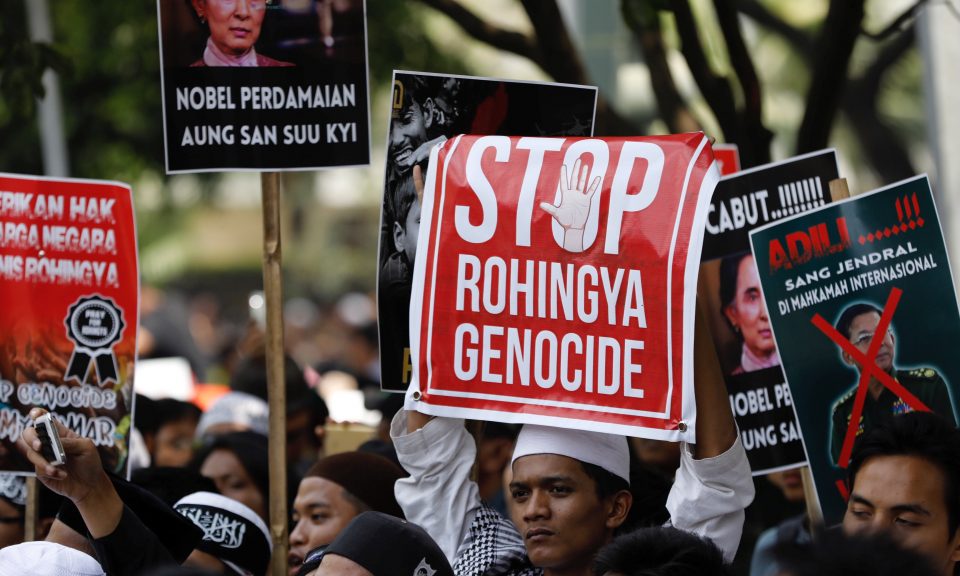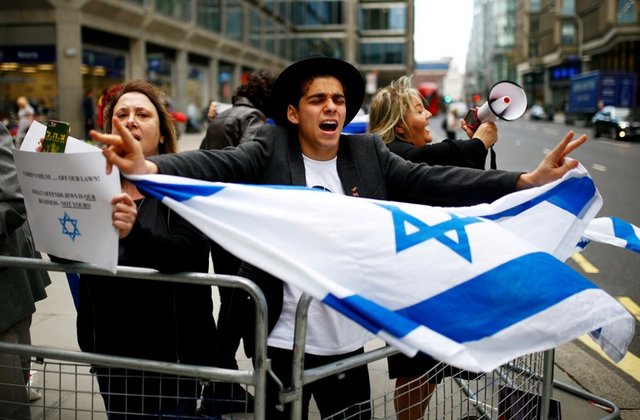
Asia Times (2 November 2018)
As Myanmar and Bangladesh limp toward implementing a bilateral agreement to repatriate hundreds of thousands of Muslim Rohingya refugees, the Association of Southeast Asian Nations is deadlocked on how to respond to the region’s greatest humanitarian crisis in a generation.
Recent headlines underscore the 10-member grouping’s stubborn inability to forge a collective and meaningful position.
On October 22, Malaysian Foreign Minister Saifuddin Abdullah was quoted in local media saying that an ASEAN foreign ministers’ “special task force,” to be led by Singaporean Foreign Minister Vivian Balakrishnan, planned to visit Myanmar at the end of October to discuss the Rohingya refugees’ return to Myanmar.
A day later, Malaysian media reported that a two-member team consisting of Singapore’s and Thailand’s foreign ministers would travel to Myanmar soon to discuss the repatriation issue, and that the return process would begin by early 2019.
Thailand’s Bangkok Post reported that the “ASEAN-approved mission” was meant to “thrash out a deal for the safe repatriation” of the refugees and could “set the tone” for the upcoming 33rd ASEAN annual summit in Singapore. Abdullah’s insistence on dealing with the issue as a “family” sent a signal of unity.
For a moment, it looked like ASEAN – known for its stubborn insistence on consensus-based multilateral diplomacy – had finally reached a modicum of common understanding on one of the most divisive issues that the organization has faced in decades.
The overtures looked like solid first steps toward reversing the passivity that the grouping has shown towards the crisis since it ignited in August 2017, when Myanmar security forces commenced their “clearance operations” that the United Nations and other groups say may have constituted crimes against humanity and genocide.
Then, on October 24, Singapore’s Ministry of Foreign Affairs denied the existence of any ASEAN special task force on Rohingya repatriation.
Two days later, The Jakarta Post reported that Myanmar had “welcomed” the “limited ASEAN task force,” and by doing so, had apparently irked Indonesia, which wants equal participation from all members. Miscommunication and confusion once again reigned supreme within the organization.
Singapore’s prompt denial of Abdullah’s pronouncement and Indonesia’s apparent protest indicate that ASEAN remains as starkly divided as ever over how to effectively and meaningfully respond to the Rohingya crisis.
Since the crisis began last year, ASEAN has failed to build a consensus on an issue that has tested the organization’s bonds.
While Muslim-majority Malaysia and Indonesia have unflinchingly criticized the Myanmar government’s handling of the crisis, others such as Singapore, Thailand, Cambodia and the Philippines have refrained from raising their voices.
Kuala Lumpur and Jakarta’s uniquely different positions were reflected in the scathing indignation of Myanmar expressed by Malaysian Prime Minister Mahathir Mohamad at the UN earlier in October.
The call by Indonesia’s representative to the ASEAN Intergovernmental Commission on Human Rights (AICHR) to bring the perpetrators of Rohingya rights abuses to book also underlined those differences.
To be sure, ASEAN’s space to forge a solution to the Rohingya situation is limited, not least by the organization’s principle of non-interference in member states’ internal affairs, but nonetheless remains crucial.
For a major multilateral organization that has survived the test of time, ignoring such a mammoth humanitarian crisis in its midst is untenable.
But the fact remains that the Rohingya issue is a uniquely sensitive and polarizing one for ASEAN to tackle. It is not an ordinary humanitarian crisis, but a predominantly political issue linked to identity, social perceptions and self-determination.
Consensus on such matters do not always flow naturally, like it did in the past when Myanmar’s previous military junta clamped down hard on pro-democracy activists, including current State Counselor and de facto national leader Aung San Suu Kyi.
For a geopolitical grouping in a liberal and democratic world order, opposing a military government is far easier than standing up to a popularly elected leader, especially a Nobel Peace Prize laureate who commands goodwill in the region.
ASEAN’s reticence on the Rohingya issue is also complicated by the critical bilateral relations that major Southeast Asian powers have forged with Suu Kyi’s government.
Singapore and Thailand are cases in point. As the current and next year’s rotating ASEAN chairs, both countries hold or will hold immense power to direct the organization’s response to the Rohingya crisis.
Singapore, in terms of updated approved amounts, is the second-largest foreign investor in Myanmar this year, with a total cleared investment of US$19.8 billion (25.4% of all incoming investments) as of September 2018.
Only China has invested more in the country, with a slightly higher approved amount of $20.2 billion. This uniquely flourishing economic relationship should give Singapore significant diplomatic leverage over Naypyitaw.
But those ties cut both ways: Singapore can either leverage those robust bilateral ties as a pitch to extract meaningful concessions from Naypyitaw on the Rohingya issue as ASEAN’s chair, or it can instead opt to be only nominally vocal to avoid straining its bilateral relations with the Suu Kyi government.
While the critical remarks made by Singapore’s foreign minister, Vivian Balakrishnan, on the sidelines of the recent UN General Assembly plenary session indicate that Singapore might be willing to tighten the screws somewhat on Naypyitaw as ASEAN’s chair, it’s not clear it’s willing to jeopardize its investment position in a rapidly liberalizing Myanmar.
Myanmar’s and Thailand’s relationship is yet another impediment to ASEANs potential to put collective pressure on Myanmar.
Thailand, which shares a 2,204-kilometer border with Myanmar, remains one of Naypyitaw’s most trusted regional partners. It is currently the third-largest investor in Myanmar after China and Singapore, with an approved amount of $14.3 billion as of September 2018.
The two sides have successfully and meticulously negotiated delicate bilateral complexities over the years, including on their own refugee issues from conflicts in Myanmar’s eastern regions.
Thailand now routinely hosts informal meetings on its soil between Myanmar’s ethnic armed organizations and Myanmar government representatives as part of an ongoing peace process.
It is thus no surprise that Bangkok has silently backed Naypyitaw over the Rohingya issue since the recent tensions began.
In the past, Thailand has acted harshly against Rohingya refugees, detaining and/or deporting those fleeing the violence in Myanmar, while also classifying Rohingya asylum seekers as “illegal immigrants.”
In April, Thailand pushed back 56 Rohingya refugees to sea, while in September its police forcibly shut down a meeting of journalists who had gathered to discuss the Rohingya crisis at the Foreign Correspondents’ Club in Bangkok.
Thailand’s past and present actions indicate that Bangkok will continue to prioritize maintaining warm bilateral relations with Myanmar rather than ramping up pressure when it takes over ASEAN’s rotational leadership in 2019.
Within this context, prospects for dramatic multilateral assertions or policy propositions on the Rohingya crisis remain unlikely at the upcoming 33rd ASEAN Summit in November.
Recent summits have set the tone in this regard: in the chairman’s statement of the 32nd ASEAN Summit held in April 2018, the Rohingya issue was mentioned in a single clause and without mention of the term “Rohingya.”
The joint communiqué of the ASEAN Foreign Ministers Meeting held in August also addressed the issue only nominally, that time on the 18th page under the “Climate Change, Environment and Biodiversity” subsection.
The least that ASEAN can do is closely monitor how Naypyitaw and Dhaka implement the bilateral repatriation agreement in collaboration with UN agencies.
It could also assist all stakeholders in doing so through logistical and capacity-building aid using the already operational ASEAN Coordinating Center for Humanitarian Assistance.
This is even more significant in light of Tuesday’s announcement by Myanmar and Bangladesh officials that the repatriation process would begin this month, despite still adverse conditions in Rakhine state.
But the grouping’s position is arguably already compromised through its support of the Myanmar-appointed Independent Commission of Inquiry that is currently collecting evidence on allegations of war crimes brought by the international community against the Myanmar army. The commission has been criticized for lacking independence and whitewashing the Myanmar military’s crimes.
This makes it virtually impossible for the organization to collectively support other international mechanisms for accountability, like the ongoing International Criminal Court investigation or the UN Human Rights Council-mandated “independent mechanism” to collect and analyze evidence, both of which Naypyitaw has flatly dismissed.
As such, ASEAN’s relevance in resolving the crisis is very much in doubt.
http://www.atimes.com/article/rohingya-refugee-crisis-is-tearing-asean-apart/
No comments yet.
- S. KOREA’S MOON: KIM TO VISIT SEOUL ‘SOON’ Asia - Pacific 02.11.2018
-
 FIRST MEETING OF AZERBAIJAN-BULGARIA STRATEGIC DIALOGUE HELD
The Caucasus and Turkish-Armenian Relations
02.11.2018
FIRST MEETING OF AZERBAIJAN-BULGARIA STRATEGIC DIALOGUE HELD
The Caucasus and Turkish-Armenian Relations
02.11.2018
- IRAQ SECURES ITS BORDERS WITH SYRIA Iraq 02.11.2018
-
 BRITISH POLICE INVESTIGATE ANTI-SEMITIC HATE CRIMES IN LABOUR
Europe - EU
02.11.2018
BRITISH POLICE INVESTIGATE ANTI-SEMITIC HATE CRIMES IN LABOUR
Europe - EU
02.11.2018
- ARMENIA’S ACTING DM, LEBANESE DM SIGN MILITARY COOPERATION AGREEMENT The Caucasus and Turkish-Armenian Relations 02.11.2018
-
25.01.2016
THE ARMENIAN QUESTION - BASIC KNOWLEDGE AND DOCUMENTATION -
12.06.2024
THE TRUTH WILL OUT -
27.03.2023
RADİKAL ERMENİ UNSURLARCA GERÇEKLEŞTİRİLEN MEZALİMLER VE VANDALİZM -
17.03.2023
PATRIOTISM PERVERTED -
23.02.2023
MEN ARE LIKE THAT -
03.02.2023
BAKÜ-TİFLİS-CEYHAN BORU HATTININ YAŞANAN TARİHİ -
16.12.2022
INTERNATIONAL SCHOLARS ON THE EVENTS OF 1915 -
07.12.2022
FAKE PHOTOS AND THE ARMENIAN PROPAGANDA -
07.12.2022
ERMENİ PROPAGANDASI VE SAHTE RESİMLER -
01.01.2022
A Letter From Japan - Strategically Mum: The Silence of the Armenians -
01.01.2022
Japonya'dan Bir Mektup - Stratejik Suskunluk: Ermenilerin Sessizliği -
03.06.2020
Anastas Mikoyan: Confessions of an Armenian Bolshevik -
08.04.2020
Sovyet Sonrası Ukrayna’da Devlet, Toplum ve Siyaset - Değişen Dinamikler, Dönüşen Kimlikler -
12.06.2018
Ermeni Sorunuyla İlgili İngiliz Belgeleri (1912-1923) - British Documents on Armenian Question (1912-1923) -
02.12.2016
Turkish-Russian Academics: A Historical Study on the Caucasus -
01.07.2016
Gürcistan'daki Müslüman Topluluklar: Azınlık Hakları, Kimlik, Siyaset -
10.03.2016
Armenian Diaspora: Diaspora, State and the Imagination of the Republic of Armenia -
24.01.2016
ERMENİ SORUNU - TEMEL BİLGİ VE BELGELER (2. BASKI)
-
AVİM Conference Hall 24.01.2023
CONFERENCE TITLED “HUNGARY’S PERSPECTIVES ON THE TURKIC WORLD"









